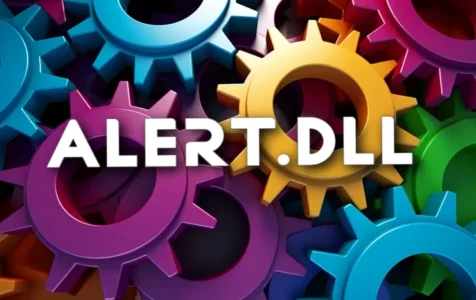When navigating the complex ecosystem of computer files, it’s important to understand what certain files are for and whether they’re safe. In the case of Alert.dll, you might encounter this file if you’ve had the Conduit Toolbar installed on your computer. Alert.dll is a dynamic link library file linked to this toolbar, which was an application that let users create custom apps that were then distributed via the Conduit marketplace. The company behind it, Conduit Ltd., was a significant figure in the Israeli tech scene before divesting some of its assets to Perion Network in 2013.
Alert.dll, specifically, plays a role in enabling Conduit Community Alerts. However, it’s worth noting the toolbar’s checkered reputation. With capabilities likened to browser hijacking and rootkits, the Conduit Toolbar earned the dubious title of malware. Concerns with Alert.dll revolve not only around its association with the unwanted Conduit Toolbar but also its potential to affect system behavior in ways that can jeopardize user safety.
Given this information, you’re right to be cautious. Alert.dll is not a Windows system file and has the ability to record keyboard inputs, which is a common feature in malicious programs. Users and experts often consider such files potentially harmful, and they suggest removing them from your system.
Could Alert.dll Be Malicious?
While Alert.dll is not inherently a Windows system component, it has a legitimate purpose related to the Conduit Community Alerts software. Nonetheless, due to its capabilities mentioned earlier—such as not having a window and the ability to log keystrokes—it might be deemed unsuitable or dangerous. More worryingly, it’s possible for malware to disguise itself as Alert.dll, adding another layer of risk.
Expert Tip: For smoother PC performance, consider using a PC optimization tool. It handles junk files, incorrect settings, and harmful apps. Make sure it's right for your system, and always check the EULA and Privacy Policy.
Special offer. About Outbyte, uninstall instructions, EULA, Privacy Policy.
Fixing Issues Related to Alert.dll
If you discover that Alert.dll is causing issues on your computer, here are steps to address the problem:
1. Uninstall Conduit Toolbar or any associated software via the Control Panel, under “Programs and Features.” After uninstalling, restart your computer and check if the Alert.dll file is still in its original location. If it is, you might need to delete it manually.
2. Use anti-malware software to scan for and eliminate any potential threats. It is recommended by several users and experts. Programs like Malwarebytes can be instrumental in dealing with such potential threats.
3. A precautionary measure includes using task managers such as Security Task Manager, which can show you all running processes and assess their security risk. They’re handy in identifying suspicious files.
4. Perform regular system backups or set system restore points. This can be incredibly useful if you need to revert to a previous state without losing data due to file removal or other alterations.
5. Remember to keep your operating system up to date. Updating may resolve DLL issues and improve overall system security.
Summarizing User Experiences and Community Discussion
Users have varying opinions on Alert.dll, but many express concern over its association with potentially unwanted applications and malware. Some users report removing the file to protect their system, while others remain uncertain about its impact.
Community discussions suggest that while the file may at times perform legitimate functions, any unusual behavior linked to Alert.dll should prompt an immediate check for malware.
Remember, being informed and staying vigilant about the files on your system is your first line of defense against potential cyber threats. Regular scans, updates, and community wisdom are tools at your disposal for maintaining system integrity and ensuring peace of mind.
